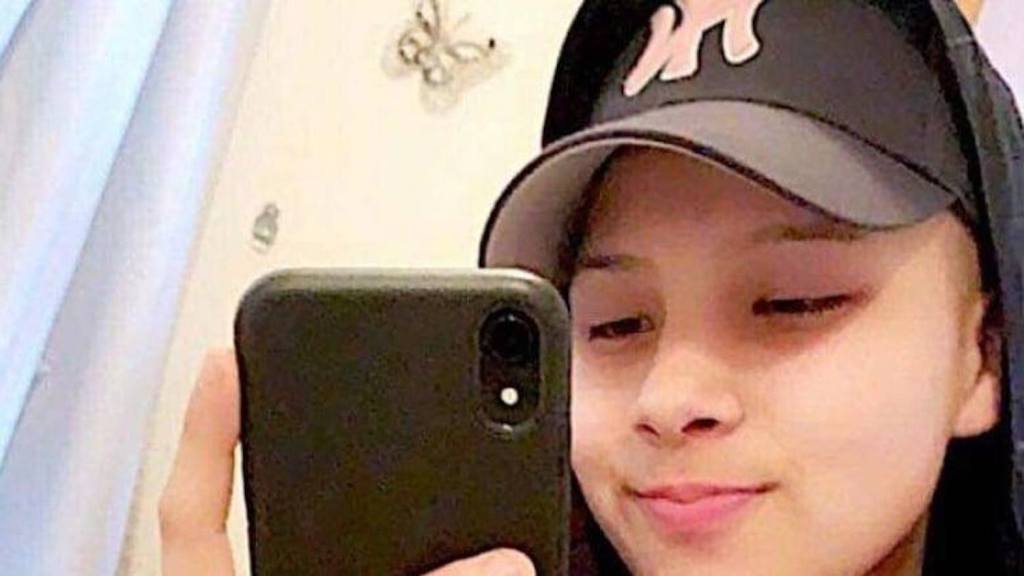Families are reeling and Indigenous organizations are calling for answers after Winnipeg police shot and killed three Indigenous people in the span of only 10 days.
Eishia Hudson, 16, was shot by police on April 8 following a car chase and collision. Winnipeg police released a statement saying Hudson and four other teenagers were in a stolen car linked to a liquor store robbery and “a hit and run with a fence” when the teen girl was shot dead in the driver’s seat.
Videos by VICE
It was the first of two fatal police shootings in the span of 24 hours. Around 5 a.m. the following morning, Jason Collins, 36, was killed by a police officer following a report of a domestic incident.
Then, on April 18, a 22-year-old father of three identified by CBC as Stewart Kevin Andrews was shot and killed by Winnipeg police. Police said the officers were responding to two calls—one about an armed mugging, the second about broken windows—when they shot Andrews and injured a 16-year-old who was with him.
Police say the Independent Investigation Unit of Manitoba has been called to look into all three incidents. The Manitoba Advocate for Children and Youth announced its own investigation into Hudson’s death last week.
Watchdog groups are calling the shootings an alarming spike in police violence in the middle of a pandemic that’s adding stress and inequality to an already fraught relationship between police and Indigenous communities.

Hudson’s family described her as bighearted, smart, and athletic in a GoFundMe page created to cover burial expenses. She died weeks before her 17th birthday, and left behind seven siblings and five nieces and nephews.
“Eishia was my baby, the youngest of my children,” Christie Zebrasky, Hudson’s mother, said. “She was a homebody, stayed home a lot. Spent a lot of her time babysitting, cooking, talking on her phone… She was excited she could have graduated next year.”
Zebrasky found out her daughter was in trouble through social media posts about a high-speed chase. “Her sisters, her father, and myself called WPS (Winnipeg Police Service) for hours,” Zebrasky said. “We called every emergency hospital looking for Eishia only to be transferred and transferred to leaving my number, to no call back.” It wasn’t until midnight, six hours later, that officers arrived at Zebrasky’s door to formally deliver the news.
Because of the coronavirus pandemic, Zebrasky said the family couldn’t host a proper service. “It was short and limited,” she said, “just a viewing.” The family lit a sacred fire for Hudson for four days.
When the family called out to the community to leave candles and flowers at the intersection where Hudson was shot on Easter Sunday, police responded by blocking public access.
“WPS will be shutting down Lagimodiere and Fermor due to a protest,” Winnipeg police tweeted. Police later clarified the roadblock was to ensure the safety of everyone attending the vigil. Zebrasky told VICE she is still baffled and confused by the police actions.
“I offer sincere condolences and send a heartfelt tribute to the families and Nations of the three young people who have recently lost their lives due to WPS officer-involved shootings,” Grand Chief Arlen Dumas of the Assembly of Manitoba Chiefs said in a statement on Tuesday.
Dumas countered Winnipeg’s top cop, who called the killings “unrelated events” at a news conference. “Contrary to Danny Smyth, the Winnipeg Police Service’s Chief of Police, this loss of the lives of First Nations people by the WPS are not an ‘anomaly,’” he said.
Drew Lafond, president of the Indigenous Bar Association, told VICE the deaths underline how Manitoba’s justice system is still failing Indigenous people despite reports and recommendations consistently pointing to over-policing, cycles of poverty and addiction, and lack of representation in positions of power.
“We’ve identified all the problems… we have volumes of research and ample recommendations to inform what a careful and well thought-out response should be,” he said. “I think what we’re seeing now is a lack of implementation.”
Lafond called for a formal inquiry into Hudson’s death, and called on the Winnipeg police to cooperate with full transparency.
According to research by a police watchdog group, Winnipeg police have killed four people in 2020 so far, and killed seven people in 2019. Out of four shooting victims who were identified in the press in 2019, three were Indigenous.
A CBC investigation found Winnipeg police claimed 19 lives between 2000 and 2017, suggesting incidents of “deadly force” have increased dramatically in recent years. Of the 19 people killed, 11 were Indigenous—more than half of the victims. According to Statistics Canada, just over 10 percent of Winnipeg’s population is Indigenous.
When asked to confirm these figures, a Winnipeg Police Service spokesperson who declined to be named recommended VICE file a freedom of information request. The spokesperson said Winnipeg Police would cooperate with an inquiry, should the province’s chief medical examiner choose to make such a request.
Lafond said the coronavirus pandemic and the economic insecurity that comes with it may pose an extra challenge in the fight to address harms of the justice system. With trust in the system reaching an all-time low, Indigenous people are calling for more empathy, restraint, and de-escalation.
“We have to look at every person involved in these situations and realize that we are dealing with traumatized people that need help, healing, and support more often than they need punishment or death,” Winnipeg community activist Michael Champagne wrote in a recent post on his website.
Long-term, Lafond said more Indigenous representation in the legal system and on police forces will help foster trust in institutions. But with hate spilling over into social media posts, and tensions in hard-hit communities still rising, Indigenous leaders are calling for action sooner rather than later.
“The scales of justice for First Nations in Winnipeg continue to be broken and need to be fixed immediately,” Dumas said.
Follow Sarah Berman on Twitter.




